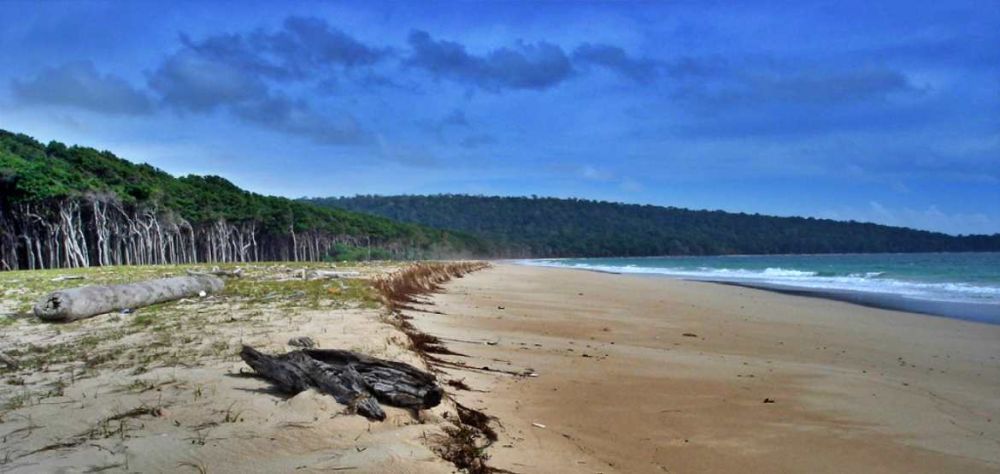

Tucked away in the northern part of the Andaman Islands lies the serene Karmatang Beach, situated near the small town of Mayabunder. Known for its sprawling coastline and picturesque settings, this beach destination offers a tranquil escape from the more tourist-trodden spots of the Andaman and Nicobar Islands.
The history of tourism in Karmatang Beach is relatively recent compared to other parts of the Andaman and Nicobar Islands. Initially, the islands served primarily as a colonial prison during the British rule in India, with the infamous Cellular Jail in Port Blair representing this dark period. However, in the latter half of the 20th century, the natural beauty of the Andamans started gaining attention.
It wasn't until the late 1980s and 1990s that tourism began to flourish in the region, with the Indian government and local administration focusing on developing the islands as a tourist destination. Karmatang Beach, with its secluded charm and rich marine life, became part of this developmental push, drawing in those seeking a peaceful retreat amidst nature.
Karmatang Beach is often referred to as the "Turtle Paradise," as it hosts a turtle nesting ground where one can witness turtle hatchlings during the nesting season. The beach itself is lined with beautiful mangrove forests, creating a unique ecosystem where land meets the sea.
The drive to Karmatang Beach is also known for its scenic splendor. Tourists can enjoy the lush green surroundings and may even spot endemic bird species along the way. The beach is equipped with small but adequate amenities including eco-friendly sit-outs, watchtowers, and walkways that enhance the visitor experience while protecting the coastal ecosystem.
In recent years, ecotourism has become increasingly popular as travelers seek to connect with nature while minimizing their carbon footprint. Karmatang Beach is perfectly positioned to cater to this trend, with its focus on preserving its natural environment and promoting sustainable tourism practices. This includes guided tours through the mangroves and educational programs on turtle conservation.
Moreover, adventure tourism is also gaining ground with activities like snorkeling and scuba diving offered in the nearby areas, attracting those looking to explore the underwater world. However, Karmatang Beach remains a destination that is less about commercialized attractions and more about soaking in the natural ambiance.
The local authorities and conservation groups are actively involved in ensuring that tourism development does not disrupt the ecological balance of Karmatang Beach. There are ongoing initiatives to educate visitors on responsible tourism practices, such as avoiding the use of plastic, not disturbing the wildlife, and supporting local businesses that employ sustainable methods.
As a visitor to Karmatang Beach, you can contribute to these efforts by being mindful of your environmental impact, participating in conservation activities, and choosing eco-friendly accommodations and services.
Karmatang Beach offers a blend of serene beauty, unique wildlife, and an opportunity to unwind in an unspoiled natural setting. As tourism continues to evolve, this beach is poised to become a prime example of how a destination can thrive by balancing visitor enjoyment with ecological preservation. Whether you're a nature lover, a solo traveler seeking solitude, or a family looking for a peaceful vacation spot, Karmatang Beach awaits with its pristine sands and warm hospitality.